Understanding the Basics of Grant Writing

Grant writing is a crucial skill for securing funding for non-profits. Understanding the basics will help you create compelling proposals.
- Research Grant Opportunities: Start by identifying grants that match your organization’s mission and projects. Look for funding sources that align with your goals.
- Know Your Funder: Each grant has specific requirements. Study the funder’s priorities and guidelines to tailor your proposal accordingly.
- Develop a Clear Proposal: Write a clear, concise proposal. Outline your organization’s mission, the problem you aim to address, and how the grant will help.
- Create a Strong Narrative: The narrative should engage the reader. Explain the need for funding and how it will be used. Include data and personal stories to strengthen your case.
- Include a Budget: Provide a detailed budget. This should include how the grant money will be spent and justify each expense.
- Proofread and Edit: Ensure your proposal is free from errors. Proofread for clarity, accuracy, and adherence to the funder’s guidelines.
- Submit on Time: Follow submission instructions carefully. Submit your proposal before the deadline to avoid last-minute issues.
- Follow Up: After submission, follow up with the funder. Be ready to provide additional information if needed.
Effective grant writing involves careful preparation and attention to detail. At Just Group Consultancy, we offer expert guidance to help you navigate the grant writing process. Contact us to learn how we can support your grant-seeking efforts. Just Group Consultancy, we assist non-profits in assessing and optimizing their philanthropic efforts. Contact us to learn how we can support your organization in maximizing the impact of your partnerships.
Identifying the Right Grants for Your Non-Profit

Finding the right grants is key to successful funding. Here’s how to pinpoint opportunities that match your organization’s needs:
- Define Your Needs: Start by outlining your organization’s goals and funding needs. Be specific about the projects or programs requiring support.
- Research Grant Sources: Look for grants from foundations, government agencies, and corporations. Utilize online grant databases and resources to find relevant opportunities.
- Match Your Mission: Ensure the grant aligns with your mission. Read the funder’s guidelines to see if their priorities match your objectives.
- Check Eligibility Criteria: Verify that your organization meets the grant’s eligibility requirements. This includes size, geographic location, and project type.
- Review Past Recipients: Examine who has received the grant previously. This can provide insights into the types of projects funded and help you tailor your proposal.
- Assess Grant Size and Scope: Consider the grant amount and its scope. Make sure it fits your project’s needs and budget.
- Understand Application Requirements: Familiarize yourself with the application process. This includes deadlines, required documents, and submission methods.
- Seek Professional Help: If needed, consult with experts. At Just Group Consultancy, we can help you navigate the complexities of grant research and selection.
Identifying the right grants involves careful research and alignment with your mission. Let Just Group Consultancy guide you in finding and securing the best funding opportunities for your non-profit. Contact us to get started.
Crafting a Compelling Grant Proposal

Creating a compelling grant proposal can be the key to securing funding. Here’s how to make your proposal stand out:
- Start with a Strong Executive Summary: Your summary should be clear and concise. Highlight the core of your project and its impact.
- Define the Problem Clearly: Explain the issue your project addresses. Use data and real stories to illustrate the problem.
- Describe Your Solution: Outline your project or program. Explain how it solves the problem and why it is effective.
- Include Specific Goals and Objectives: Set clear, measurable goals. Make sure your objectives are achievable and aligned with the funder’s priorities.
- Provide a Detailed Plan: Share your plan for implementing the project. Include timelines, activities, and resources required.
- Showcase Your Organization’s Expertise: Highlight your team’s qualifications. Demonstrate your organization’s capability to manage and execute the project.
- Outline the Budget Clearly: Present a detailed budget. Break down costs and explain how funds will be used effectively.
- Include Evaluation Methods: Describe how you will measure success. Outline methods for tracking progress and evaluating outcomes.
- Proofread and Edit: Review your proposal carefully. Ensure it is free of errors and adheres to the funder’s guidelines.
A well-crafted grant proposal tells a compelling story. It demonstrates your project’s potential impact and your organization’s ability to deliver. At Just Group Consultancy, we offer expert guidance in developing proposals that resonate with funders. Contact us to learn more and start crafting a winning proposal today.
Common Mistakes to Avoid in Grant Writing

Avoiding common pitfalls can enhance your grant proposal’s success rate. Here are key mistakes to watch for:
- Ignoring Guidelines: Always follow the funder’s guidelines. Missing details or format issues can disqualify your proposal.
- Vague Objectives: Clearly define your project’s goals. Avoid broad or ambiguous statements that lack specificity.
- Overlooking the Budget: Present a realistic budget. Ensure it aligns with your project’s needs and justifies all expenses.
- Lack of Impact Evidence: Support your proposal with data. Show how your project will make a measurable difference.
- Underestimating Evaluation: Include a strong evaluation plan. Describe how you will track and measure your project’s success.
- Neglecting Proofreading: Errors can undermine your credibility. Proofread your proposal multiple times and consider having someone else review it.
- Inadequate Background Information: Provide sufficient context about your organization. Funders need to understand your capability and experience.
- Failing to Address Funders’ Priorities: Align your proposal with the funder’s mission and interests. Tailor your content to meet their specific goals.
- Overloading with Jargon: Use clear, simple language. Avoid technical jargon that might confuse reviewers.
By steering clear of these mistakes, you enhance your proposal’s chances of success. At Just Group Consultancy, we specialize in guiding non-profits through the grant writing process. Our expertise helps you craft compelling proposals and avoid common errors. Contact us to refine your approach and boost your grant success rate.
Effective Budgeting for Grant Proposals

A well-crafted budget is crucial for a successful grant proposal. Here’s how to ensure your budget meets funders’ expectations:
- Detail Every Expense: Break down costs into specific categories. Include salaries, materials, and operational costs for full transparency.
- Justify Costs Clearly: Explain why each expense is necessary. Funders want to understand how their money will be used effectively.
- Include Realistic Estimates: Avoid overestimating or underestimating costs. Use accurate, current data to present a realistic budget.
- Align with Project Goals: Ensure your budget aligns with the project’s objectives. Each expense should support the project’s goals and outcomes.
- Show Matching Funds: If required, demonstrate how you will match the grant. Include details of any additional funding sources or in-kind contributions.
- Plan for Contingencies: Include a contingency fund for unexpected expenses. This shows you’re prepared for potential changes.
- Review Guidelines Thoroughly: Adhere to the funder’s budget guidelines. Different funders have different requirements and limitations.
- Keep It Simple and Clear: Use clear language and avoid jargon. A straightforward budget is easier for reviewers to understand.
Effective budgeting is not just about numbers; it’s about demonstrating financial responsibility. At Just Group Consultancy, we guide non-profits through creating precise, compelling budgets. Let us help you make your grant proposals stand out with well-structured budgets. Contact us today to enhance your grant writing success.
Navigating the Grant Application Process

Understanding the grant application process is key to securing funding. Follow these steps to make the journey smoother:
- Research Funding Opportunities: Start by identifying grants that align with your mission. Use databases and funder websites to find relevant options.
- Read Guidelines Carefully: Each grant has specific requirements. Thoroughly review these guidelines to ensure your application meets all criteria.
- Prepare Required Documents: Gather all necessary documents, such as your organization’s financials, project plans, and proof of non-profit status. Keep them organized for easy access.
- Develop a Clear Proposal: Write a compelling proposal that outlines your project’s goals, methods, and expected outcomes. Make sure it addresses the funder’s priorities.
- Follow Submission Instructions: Adhere to submission guidelines meticulously. Pay attention to format, deadlines, and any additional requirements.
- Proofread and Edit: Review your application multiple times. Look for errors or inconsistencies, and ensure clarity and coherence.
- Seek Feedback: Before submitting, have someone else review your proposal. They can offer valuable insights and catch mistakes you might have missed.
- Track Your Application: After submission, monitor the status of your application. Be prepared to provide additional information if requested.
Navigating the grant application process can be complex. At Just Group Consultancy, we offer expert guidance to help you through each step. Reach out to us to ensure your application is thorough and compelling, enhancing your chances of success. Let’s work together to bring your projects to life.
Securing Funding: Tips for Success

Securing funding for your non-profit can be challenging but rewarding. Follow these tips to increase your chances of success:
- Know Your Audience: Research potential funders. Understand their goals, interests, and priorities. Tailor your proposal to align with their objectives.
- Craft a Strong Narrative: Your proposal should tell a compelling story. Explain why your project matters and how it will make a difference.
- Be Specific and Clear: Avoid vague language. Clearly outline your project’s goals, methods, and expected outcomes. Provide detailed information on how funds will be used.
- Showcase Impact: Demonstrate the potential impact of your project. Use data and examples to show how it will benefit the community or target group.
- Develop a Realistic Budget: Create a detailed budget that reflects your project’s needs. Ensure it is realistic and justifiable, with clear explanations for each expense.
- Follow Instructions: Adhere strictly to the funder’s guidelines. Ensure your proposal meets all formatting, content, and submission requirements.
- Proofread Your Proposal: Carefully review your application for errors and inconsistencies. A well-polished proposal reflects professionalism and attention to detail.
- Build Relationships: Engage with funders and maintain communication. Building relationships can lead to future opportunities and additional support.
At Just Group Consultancy, we understand the nuances of grant writing. Our team provides expert advice to help you craft successful proposals. Contact us to enhance your grant-seeking efforts and secure the funding your non-profit needs. Let’s achieve your goals together.
Building Long-Term Relationships with Grantmakers

Building strong, lasting relationships with grant-makers is crucial for ongoing success. Here’s how to nurture these vital connections:
- Communicate Regularly: Keep grantmakers informed about your progress. Send updates on your project’s success and challenges. Regular communication builds trust.
- Show Appreciation: Always thank grantmakers for their support. Acknowledge their contributions in your reports and communications. Gratitude goes a long way.
- Provide Detailed Reports: Submit comprehensive reports detailing how funds were used and the impact achieved. Clear, honest reporting reinforces credibility.
- Seek Feedback: Ask for feedback on your proposals and reports. Understanding their perspective can help improve your future submissions.
- Involve Grantmakers: Whenever possible, invite grantmakers to events or activities related to your project. Engagement fosters a deeper connection and shows the real-world impact of their support.
- Be Transparent: Be open about your challenges and successes. Transparency helps build a stronger, more trusting relationship.
- Demonstrate Results: Highlight the outcomes of your projects. Show how their funding has made a difference. Demonstrating results reinforces the value of their investment.
- Cultivate Personal Connections: Build personal rapport with grantmakers. Understanding their interests and preferences can enhance your relationship.
At Just Group Consultancy, we guide you in creating meaningful connections with grant-makers. Our expertise helps you maintain and grow these relationships, ensuring continued support for your non-profit. Let’s work together to achieve lasting success and impact.
